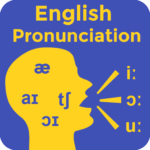
⇐ There are many ways of laughing… ←
…many kinds of laughter ⇐
* * *
¤→Shiny shiny⇐(a challenge for translators)⇒
Φ ‘Una lección para guiris’:
⇒ attitudinal idiomatic expressions ⇐
* […]
|
||||||

•→ www.howjsay.com⇐ / •→MacMillan Online Dictionary⇐ ⇐ Tips & links •→ speechactive.com/english-consonants-ipa-international-phonetic-alphabet/ ⇐ •→cambridgeenglishonline/Phonetics_Focus/⇐[tasks] ∞ Minimal Pairs ⇒[01] ⇔ [02] ⇔ [03]⇐ • Find the odd one out: which word does not rhyme with the others? ⇒[01] ⇔ [02] ⇔ [03] ⇔ [04]⇐
©→U maze← [quiz] → O maze←© […] 
Learning strategies or study skills ⇑ determine the approach for achieving the learning objectives. The strategies are usually tied to your needs and interests to enhance learning and are based on many types of learning styles. ¤ Learning strategies ← ¤ Guessing meaning from context ←(A favourite strategy) •→Better […] 
The→THREE DISCOURSE PRINCIPLES ←[Advanced] •→INFORMATION ORDERING ⇔ [quiz] ← • Here’s a great lesson on →DISCOURSE MARKERS← courtesy of Kenneth Beare, an ESL teacher, trainer, and content developer. He provides consulting services for English language learning projects through Englishfeed, as well as being the founder of Lingofeeds, dedicated to English for […] 
¤ Markéta Guňková: Why teach delexical verbs? (1) frequency: Delexical verbs are common structure in English, either in everyday conversations (have a drink, give a call, take a break) or in academic English (make a contribution, give a speech, do research). (2) fluency: delexical structures contribute to the impression of fluency […] 
In linguistics, one of many styles or varieties of language determined by such factors as social occasion, purpose, and audience. More generally, register is also used to indicate degrees of formality in language use. Formal Style Informal Style Legal English Levels of Usage ¤ Formal & informal English: explanations & tips… abril 15th, 2015 | Tags: tips, style, quiz | Category: FunctionaLang | Leave a comment 
¤ Finite & Non-finite Verbs ←[pdf] ¤ Auxiliary Verbs ⇐ «Auxiliaries are required with non-finite verbs. This is their role to mark non-finite verb forms for tense, aspect and voice, which non-finite verbs cannot express. Finite verbs mark these features on their own.» (Bernard T. O’Dwyer, Modern English Structures: Form, Function) […] 
∴ Unlike Spaniards, who are prone to exaggeration in their everyday remarks, Britons (not Americans!) tend to prefer understatements. Take a movie: while it may well be appraised as ‘Great!’ or ‘Brilliant!‘ by a Spanish national, it might simply be assessed as ‘Not bad’ (not less appraisal to be inferred from the lips […] 
•→www.chompchomp.com/terms/antecedent.htm⇐ •→Pronouns vs. determiners⇐ • quiz→ ¤ DEMOSTRATIVES ‘THIS’ – ‘THAT’ ↓ ‘THESE’ – ‘THOSE’ ¤ PERSONALS – POSSESSIVES There’s a lot of English in this chart, with all these reference words. I my mine me myself you your yours you yourself he his his him himself […] 
Stress: an essential element of rhythm, which is the most distinctive feature of the English language. Word stress is not used in Japanese or Spanish, where each syllable is pronounced with eq-ual em-pha-sis. The biggest difference in the “music” of languages is the way we speak syllables. All languages can divide […] 
¤ A slide_share presentation: ↓ History of Advertising History of Advertising from Tugce Esener Φ The Language of Advertising . . .⇐ φ Advertising vocabulary quiz . . . ⇒ [01] ⇔ [02] ⇔ [03] ⇐ •→38-examples-of-great-visual-pun-in-advertising/⇐ ◊ Guinness 1994 ⇓ ‘We have all the time in the world’ […] |
||||||